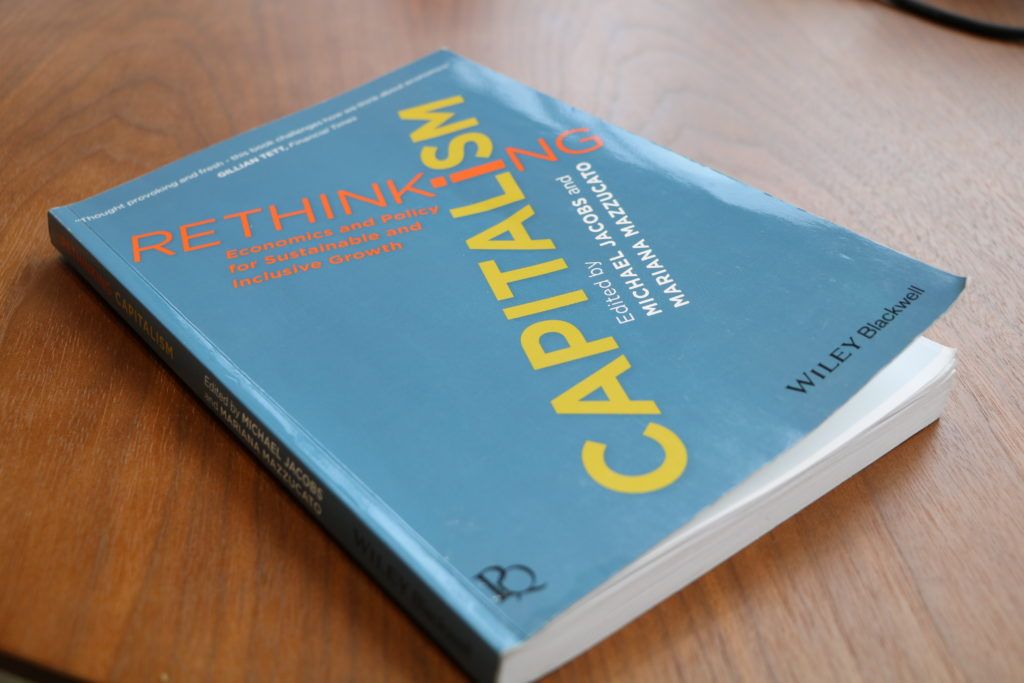Credit: Lalocracio / Getty Images
Capitalism is a on a knife-edge. In Britain just 17% of people think capitalism is “working well”. Over the pond, in America, more millennials would rather live in a socialist country than a capitalist one. And Polling for UnHerd last summer found that in both nations around 60% of people believe capitalism makes the poor poorer and the rich richer. This disillusionment is driving support for hard-left parties.
Some ardent defenders of capitalism rail against the “stupidity” of voting for politicians who advocate economic policies that have been tried and found wanting. They see as irrational the rejection of a model that has transformed the standard of living of billions of people across the globe. But they are the fools, because in ignoring the lived reality of millions of people in advanced capitalist economies, their attitude will spell the downfall of the very model they seek to protect.
For last summer’s poll findings are far from irrational. Living standards have been stagnating, along with wages, for decades. Job security has been eroding. Social mobility stalling. Inequality growing. These facts are irrefutable – in the UK and America, the rich are indeed getting richer as everyone else gets relatively poorer. While the great engine of prosperity may be running smoothly for developing nations, in the West it’s barely stuttering.
But if the first step in solving a problem is recognising there is one, then maybe we’re about to set off on the road to recovery. For while the extremes of Left and Right may not understand the value of reforming capitalism, there is a growing consensus among those in the middle that a reboot is needed. That capitalism is the right model, just not in its current – corrupted – form.
This was the subject of my podcast discussion with Michael Jacobs, co-editor of the 2016 book Rethinking capitalism: economics and policy for sustainable and inclusive growth.

Rethinking capitalism is a critique of economic orthodoxies – exposing, via a series of essays by eminent academics and economists, the flawed thinking that has led to our current broken model. As Jacobs and Mariana Mazzucato point out in their introduction:
“None of the key problems which Western capitalism has experienced over recent decades – weak growth and financial instability, declining investment and financialisation, the stagnation of living standards and rising inequality, dangerous environmental risk – is explained by [orthodox theories].”
It is largely written from a left-of-centre perspective, but as someone coming from the right of centre, I found much of the analysis compelling. Here are four examples of the “orthodoxies” the authors unpick.
- Markets alone deliver economic equilibrium, with perfect competition driving productivity.
In reality, markets operate within a set of legal rules, cultural expectations and institutional structures. As William Lazonick writes in his chapter, that’s why there are different models of capitalism around the world, and different types of firms. Markets are not operating in a vacuum. - The role of the State is to correct market failure or get out of the way.
In fact, the State sets the regulatory framework that shapes the capitalist model, but more than that it plays a fundamental role in driving growth through innovation. Mariana Mazzucato points out that the rate of innovation has declined over past decades, as the State has retreated, and the private sector has focused more on the ‘D’ in R&D. This is a problem for the long-term economic health of capitalist nations – history shows that some of the most ground-breaking innovations have been driven by the State, like the internet and nanotechnology. - Maximising shareholder value creates the right managerial incentives for a profitable company.
Wrong – this narrow obsession with shareholder returns has helped embed short-termism in corporate culture, reduced sustainable growth and penalised long-term investors. In his essay, Andrew Haldane quantifies the “capital market failure” that means publicly held firms are excessively discounting long-term opportunities. And it is this managerial philosophy that has helped drive sky-high executive pay and reduced investment in the sort of productivity-boosting innovations that deliver broader prosperity. - Trickle-down economics raises all boats and differences in remuneration are down to the marginal productivity of different participants in the production process.
Stagnating living standards despite the huge injection of money via quantative easing disproves the trickle-down theory, if anything it’s proved to be trickle-up, inflating the assets of the already wealthy – as L. Randall Wray and Yeva Nersisyan argue. And Joseph Stiglitz exposes the broken relationship between productivity and prosperity: rent-seeking, not just deserts, explains soaring executive pay.
We can add to that the oligopolisation of many markets – banking, energy, telecoms, housing – and the far too cosy relationship between politics and big business, lubricated by billions of lobbying cash. The crisis in capitalism has escalated to the point that more than three quarters of Britons and Americans believe the economy in their country is “rigged to advantage the rich and powerful” – and they’re right.
At the end of the podcast, Michael and I discussed the building consensus on Left and Right that an urgent “rethink” of capitalism is needed. Michael believes we’re facing a moment of change as powerful as that which ushered in Keynesianism in the post-war era, and neoliberalism in the 1980s. I agree. The defenders of capitalism who dismiss the need for reform should look at that polling and consider the alternative.
Click below to listen to the UnHerd in-depth podcast with Michael Jacobs.
https://soundcloud.com/user-970100804/rethinking-capitalism









Join the discussion
Join like minded readers that support our journalism by becoming a paid subscriber
To join the discussion in the comments, become a paid subscriber.
Join like minded readers that support our journalism, read unlimited articles and enjoy other subscriber-only benefits.
Subscribe